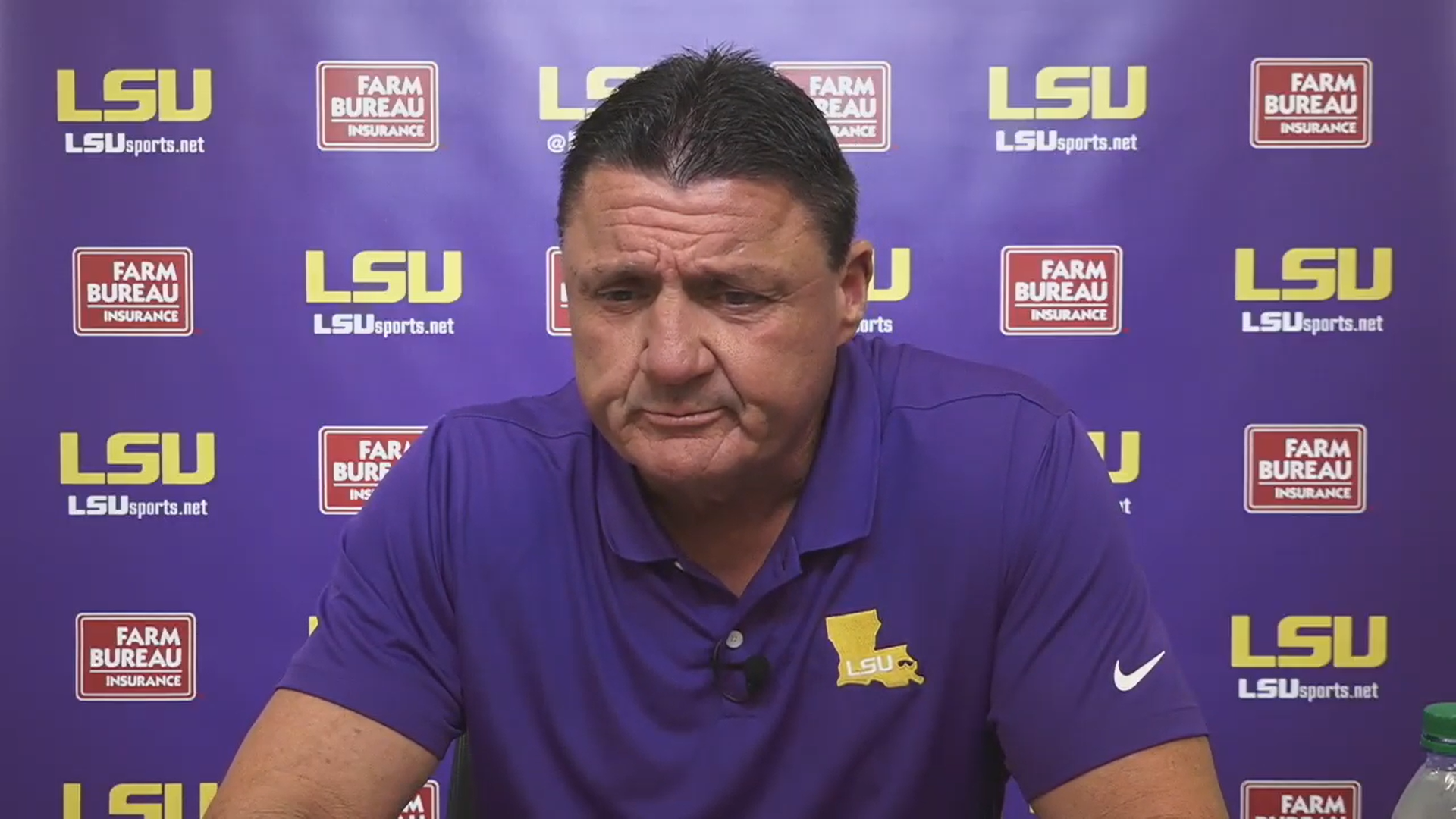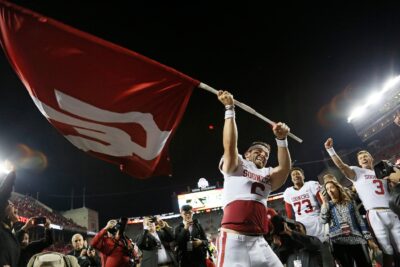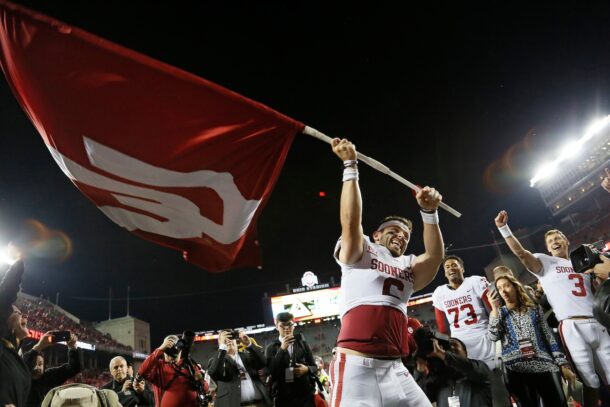
LSU final grades for the 2020 season: Not good, but better than the midterms
By Les East
Published:
LSU played their best football at the end of the season.
The Tigers won consecutive games for the only time this season when they upset then-No. 6 Florida 37-34 a week ago at The Swamp and held off Ole Miss 53-48 on Saturday at Tiger Stadium.
That salvaged a break-even record at 5-5. It salvaged some respectability. It was a strong finish to an otherwise poor season.
A lot of bad stuff happened this season. Some good stuff happened, too, most of it late.
Now that LSU has chosen not to extend their season by accepting a bowl bid, it’s time to evaluate the good and the bad and grade the entire season.
Coaching: D
Ed Orgeron and his staff did a very good job of keeping the team from unraveling, and of coaxing a positive finish from a short-handed group that seemed shell-shocked at times.
But the coaches – particularly defensive coordinator Bo Pelini – are responsible in large part for the team getting shell-shocked. The defense was often confused, and the offense often seemed hamstrung by a self-imposed, one-dimensional approach, as well as the choice to start the wrong freshman quarterback for 5 weeks.
QB play: B
Myles Brennan played very well in the first 3 games before getting hurt. TJ Finley alternated 2 good performances with 3 bad ones featuring back-breaking turnovers. Max Johnson was inconsistent in difficult mop-up assignments before lifting the offense with 2 very good starts.
The loss of Brennan was significant, but both freshmen gained valuable experience and demonstrated the potential to grow into effective leaders.
Running game: D
The running game was good when the coaching staff and game situations gave it a fighting chance. There were 5 productive games and 5 unproductive ones.
The productive ones featured a commitment to the run in the game plan that the coaches were faithful to, and good execution from the offensive line. The unproductive ones featured a lack of commitment in the game plan, or a deviation from the plan by the coaches, or a significant deficit, or poor blocking, or some combination.
Receivers: B
Ja’Marr Chase’s opt-out in the preseason thrust more pressure onto all the receivers. Terrace Marshall Jr. stepped up with a standout season before he opted out. His departure put more pressure on the remaining players.
Jaray Jenkins and Arik Gilbert (before leaving) had their moments, but it was Kayshon Boutte who raised this grade with a very strong finish that included an SEC-record 308 receiving yards against Ole Miss.
Offensive line: C
The inconsistency of the offense was triggered by the inconsistency of the line. There were good games and bad games that balanced out to an average season.
Pass defense: D
For much of the season, the coverage was terrible, and the pass rush wasn’t good enough to compensate. There were physical and mental errors that led to countless big plays and historic performances from opponents.
The pass defense got incrementally better during the last month, and the secondary came up with a few plays to keep this from being an F.
Run defense: D
The poorness of the run defense wasn’t always as glaring as the poorness of the pass defense because the big plays didn’t seem to produce lengthy touchdowns quite as frequently.
But the run defense was too often plagued by mental mistakes as well as poor tackling.
Overall GPA: 1.7
This isn’t a very good grade, but it’s better than what the midterm grade would have been.
The season could have gone off the rails after the Missouri game, or the Auburn game, or the Alabama game. But it didn’t.
The coaches didn’t lose the players, and the players didn’t give up on the coaches or themselves.
That produced a bad season that was very disappointing, but not a total failure.
Les East is a New Orleans-based football writer who covers LSU for SaturdayDownSouth.com. Follow him on Twitter @Les_East.







